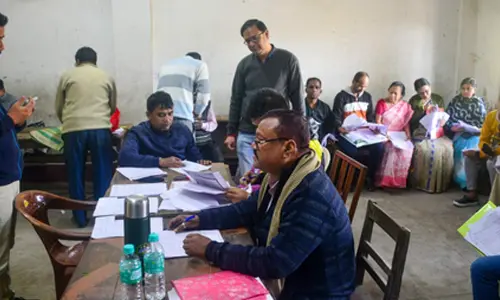Female patients less likely to get pain medication: Study
Share :

Female patients are consistently less likely to receive pain medication prescriptions compared to male patients with similar complaints, a new study reveals.
New Delhi: Female patients are consistently less likely to receive pain medication prescriptions compared to male patients with similar complaints, a new study reveals.
The study, led by Professor Shoham Choshen-Hillel and Mika Guzikevits from the Hebrew University, has uncovered a concerning sex bias in pain management decisions at emergency rooms.
The research showed that female patients are prescribed fewer pain relief medications than male patients, even after considering variables such as pain levels, age, medical history, and complaint type.
This suggests a systemic issue where women's pain is not taken as seriously or treated as aggressively as men's pain.
By analysing electronic health records from American and Israeli healthcare systems, the researchers found that female patients discharged from the emergency department are less likely to receive treatment for pain complaints compared to male patients.
Specifically, datasets from emergency departments with discharge notes, revealed that female patients are less likely to receive a prescription for any type of analgesic medication, including opioids and non-opioids, compared to male patients.
Female patients with pain complaints are less likely to receive analgesics for every pain score and age group and receive fewer analgesics from both male and female physicians.
Additionally, female patients stay an additional 30 minutes at the emergency department, and their pain score is 10 per cent less likely to be recorded by triage nurses.
In a controlled experiment involving 109 nurses, pain was rated as less intense if the patient was said to be female rather than male, suggesting that the bias is driven by gender stereotypes.
"Our research reveals a troubling bias in how women's pain is perceived and treated in emergency care settings," said Prof. Choshen-Hillel.
"This under-treatment of female patients' pain could have serious implications for women's health outcomes, potentially leading to longer recovery times, complications, or chronic pain conditions."













